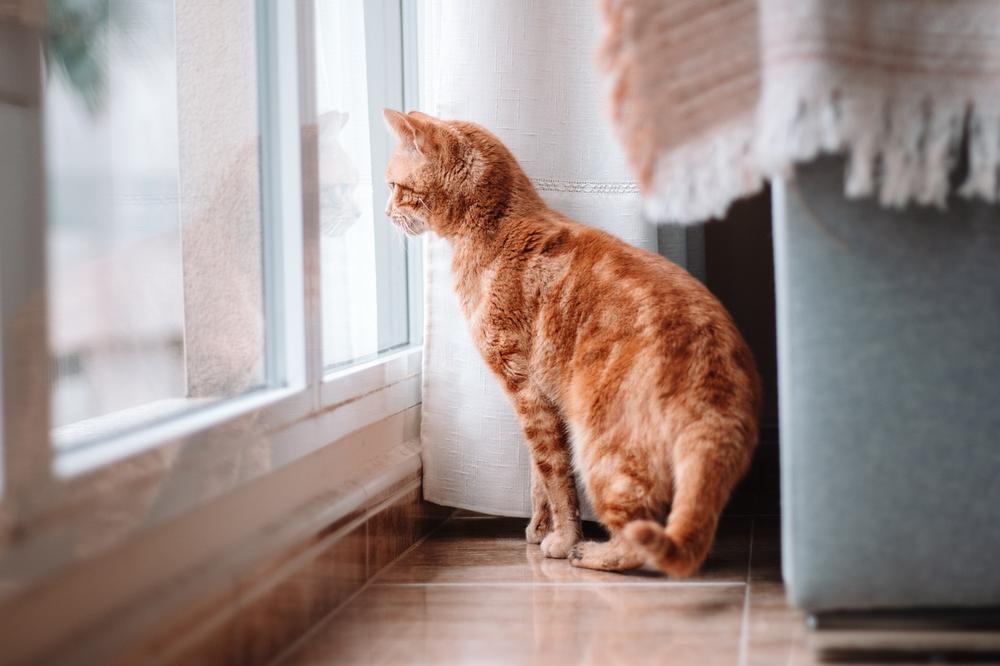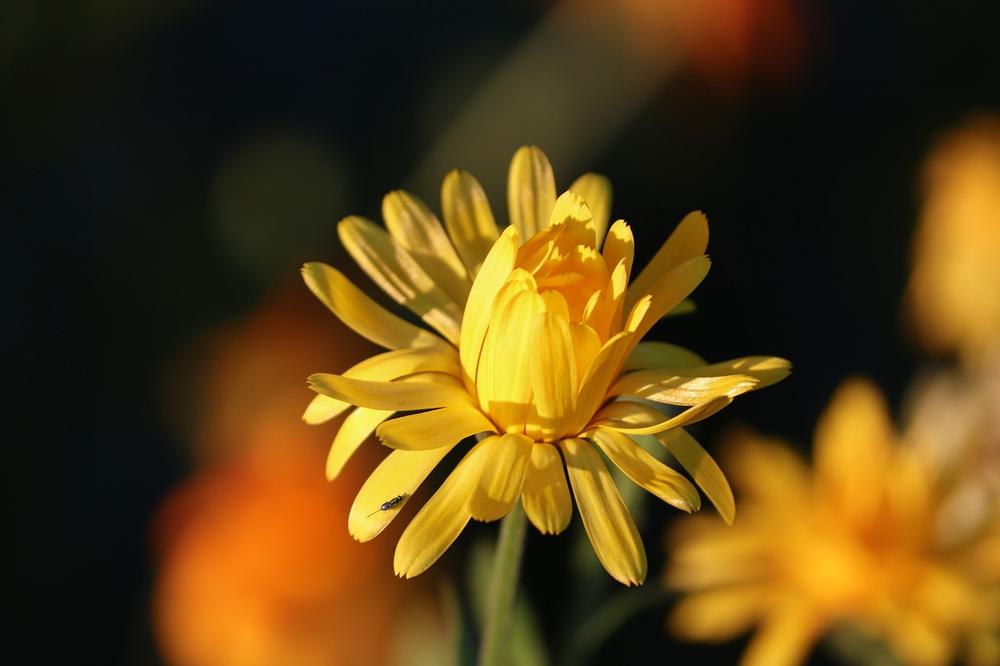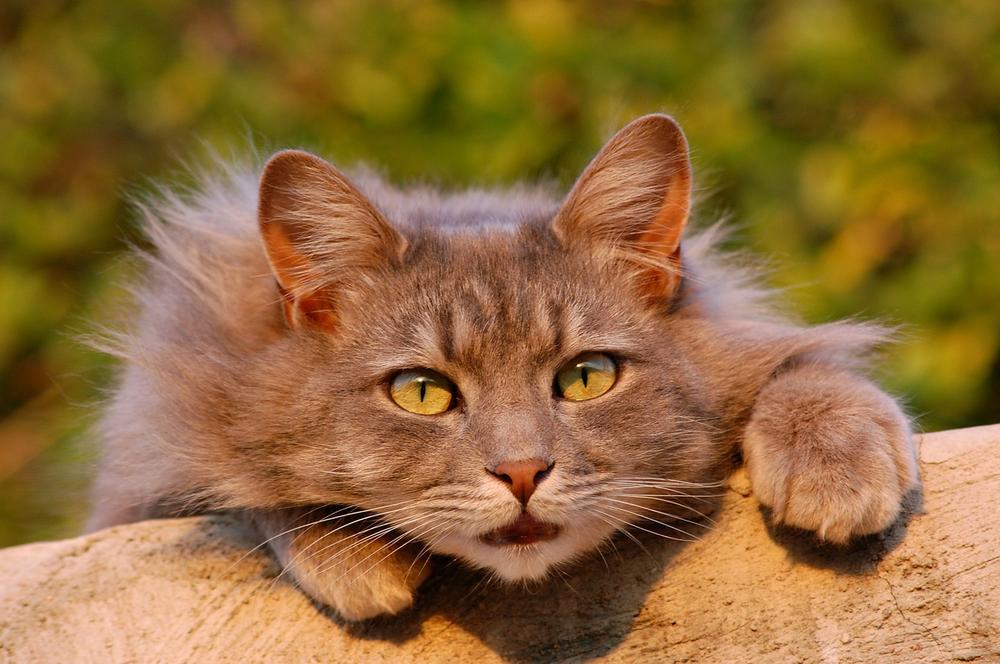Are Marigolds Poisonous to Cats? (Know What to Do)

Worried sick about your feline friend munching on marigolds?
Picture this:
You come home to find your fur baby lying listlessly on the floor, leaves of a marigold strewn around them like a crime scene. 😱
Panic sets in. Could these innocent flowers be fatal for Fluffy?
I feel you.
But fear not, for today we embark on a quest for the truth.
Let's uncover the mystery of marigolds and our cats, shall we?
Are Marigolds Toxic to Cats?
Marigolds may not be toxic to cats, but that doesn't mean they're completely safe. These flowers actually contain a compound called thiopene, which is definitely not your cat's preferred flavor.
If your furry friend decides to snack on marigold leaves or flowers, they might end up with some serious tummy troubles, causing gastrointestinal upset.
Trust me, you don't want your cat going through that ordeal because it can range from mild discomfort to life-threatening reactions.
So here's what you need to do:
- Be cautious when your pets are exploring those bright and colorful marigolds.
- Keep a close eye on them, especially if you have an inquisitive pup wandering too.
You should note that dogs can also have negative reactions to marigolds.

If your feline friend happens to take a bite out of these blooms, keep an eye out for signs like vomiting, diarrhea, or loss of appetite.
And if things start to get worse, it's best to contact your vet immediately. 😺
But what should you do if you notice any signs of marigold poisoning in your beloved feline companion?
Well, let me tell you, you have to take immediate action and seek veterinary attention.
I'll walk you through the steps to ensure your cat receives the necessary care and treatment for a speedy recovery.
What to Do if Cat Ingested Marigolds?
If you think your cat has eaten marigolds, you need to act fast.
Here's what you should do:
- Keep a close eye on your cat for signs of marigold poisoning like throwing up or having diarrhea. Watch how they're acting and if they seem okay overall.
- If you notice any symptoms, take them to the vet right away. It's better to be safe than sorry when it comes to your furry friend's health.
- Treatment for marigold poisoning involves relieving symptoms and might include giving your cat fluids through an IV and giving them medicine to stop them from throwing up. Your vet will decide the best plan for your cat's situation.
- If you're not sure which kind of marigold your cat ate or how much, don't hesitate to call an animal poison control center or your vet. They can give you helpful advice based on their knowledge.
- If your cat is having really bad side effects, get them to an emergency clinic right away. It's important that they get diagnosed and treated by professionals so they can recover properly.
- If your cat is uncomfortable because of marigold sap on their skin, consider using a shampoo that's safe for pets to gently wash them.
Acting quickly and getting expert help are crucial when dealing with cats who have eaten marigolds.

But what exactly happens when a cat ingests marigolds?
Well, the answer lies in the common signs of marigold poisoning in cats.
Gastrointestinal issues such as vomiting and diarrhea are often the first indications, leading to adverse effects like mild gastrointestinal upset and dehydration.
Let's explore these symptoms further to understand the potential consequences for your furry friend...
Signs of Marigold Poisoning in Cats?
Cats may experience gastrointestinal problems, like vomiting and diarrhea, if they consume marigolds.
These symptoms are signs of marigold poisoning in cats, causing mild gastrointestinal distress and dehydration.

If your feline friend eats marigolds, those vibrant flowers known for their beauty, you should be mindful of potential adverse effects.
Vomiting and diarrhea are likely to follow marigold consumption, which can ultimately lead to dehydration in cats.
You have to keep a close eye on your furry companion's well-being and consult a veterinarian if necessary.
What Should I Do if My Cat Has Been Exposed to Garden Marigold?
If your cat's been around marigolds, here's what to do:
- Wash the affected spot on your cat's fur with mild soap and water.
- Talk to a vet to check for any possible reactions.
- Look out for signs of skin irritation from marigold sap.
Now, pay attention:
Washing the area is key to get rid of any lingering marigold sap.
But don't stop there.
You gotta contact your vet for more advice.
They can give you specific instructions based on your cat's needs and possible reactions.
Cats have different sensitivities, so it's better to be safe and ask a professional.
Actually, your vet can guide you on the best way forward if your cat's come into contact with marigolds in any way.
And if you're concerned about the effects of marigold exposure on your cat, I strongly encourage you to read up on my blog post Is Dracaena Toxic to Cats.
This article is perfect for anyone thinking about bringing a dracaena plant into their home and wants to ensure their feline friend's safety.
Knowledge is power, and taking the time to educate yourself is always worth it when it comes to the well-being of your beloved pet.
What Are the Symptoms of Garden Marigold Toxicity in Cats?
When it comes to the symptoms of garden marigold toxicity in cats, there are a variety of manifestations that you should be aware of.

Here's a list of some specific symptoms that cats may experience if they come into contact with this poisonous plant:
- Gastrointestinal irritation: Cats exposed to garden marigolds may experience stomach upset, resulting in vomiting and diarrhea.
- Skin rashes: Contact with marigolds can cause skin reactions in cats, such as redness, itching, or even blisters.
- Abdominal pain: Cats may exhibit signs of discomfort in their abdomen, indicating potential organ irritation.
- Lack of appetite: Exposure to marigolds can decrease cats' appetite and lead to weight loss.
- Drooling: Cats may excessively salivate due to the irritating effects of marigolds on their mouth and throat.
- Lethargy and weakness: Toxicity from marigolds can cause cats to become lethargic and weak, lacking their usual energy levels.
- Tremors and seizures: In severe cases, cats may experience involuntary muscle contractions or even seizures.
- Liver damage: Marigolds contain substances called thiopenes, which can cause damage to cats' liver if ingested in large amounts.
- Potential death: While rare, extreme toxicity from marigolds can lead to fatal outcomes for cats.
You must remember that cats should never be exposed to garden marigolds due to these harmful effects.
Which Type of Marigolds Are Safe for Cats?
If you're curious about marigolds and cats, I can give you all the information you need.
Let's start with Calendula Officinalis, also known as pot marigolds.
They're safe to use on your cat's skin because they have anti-inflammatory and antiseptic properties that can help with any skin issues your furry friend may have.
But there's more to know.
French marigolds, or Tagetes, are also safe for your cat, as long as they don't eat them. Eating these marigolds could cause tummy troubles, so it's best to keep them away from your cat's food.
Now, let's talk about garden marigolds. The good news is, they're not toxic to cats at all.
In fact, marigolds have many benefits for our feline friends.
They contain lutein, which is great for vision (just like carrots!), and they also have limonene, which keeps their fur shiny and clean.
And here's a fun fact:
It's not just marigolds that are safe for cats.
You have other options like catnip, zinnias, wild pansies, snapdragons, oat grass, rosemary, and bean sprouts. So, when it comes to choosing green goodies for your cat, there's plenty to choose from.
I hope this clears up any questions you had about marigolds and cats.
Remember to take care of your furry friend and ensure they only enjoy the safe plants mentioned above.
And now that we know which marigolds are safe for cats, let's discuss how to keep them protected from potentially harmful plants...
How Can I Prevent My Cat From Being Exposed to Garden Marigold
Keep garden marigolds away from your cat
You know, marigolds might not be poisonous for your adorable feline, but that doesn't mean they're completely safe either.
If your furry friend nibbles on too many marigolds or if the plants have been treated with pesticides, they can still get sick.
So, how can you make sure your beloved kitty stays out of harm's way?
Relocate marigolds and use deterrents
Here's a simple idea: why don't you move your marigold plants to an area that is off-limits to your curious pet?
Try setting up an elevated garden, using hanging baskets, or placing them in spots where cats can't climb over barriers.
To make marigolds less tempting for your feline companion, you can try homemade deterrents such as water or vinegar solutions.

You just lightly spritz the leaves to discourage your curious little buddy from exploring further.
Offer distractions and alternatives
If you don't want your beloved cat to develop a taste for marigolds, you must provide plenty of other engaging options. Playtime and toys are fantastic ways to divert their attention from those colorful flowers.
Make sure you engage in interactive play regularly, so their minds stay occupied and they won't seek out unwanted vegetation.
Creating a separate garden specifically designed for your cat can also be a great idea. Fill it with non-toxic plants and grasses that cats enjoy munching on, so they won't feel the need to venture into potentially dangerous areas.
Always make sure that you keep any potentially harmful plants well out of their reach, preferably indoors or within enclosed gardens.
And when choosing new plants for your home, consider growing them from seed to avoid exposing your precious pet to any harmful chemicals.
Now you have all the knowledge needed to prevent your cherished cat from getting too close to those tempting marigolds.
Take these simple steps to keep your furry friend safe and sound.
Cats and Marigolds: Safety Tips to Remember
Key takeaways:
- Marigolds are not poisonous to cats, but they contain a compound called thiopene that can be harmful.
- Ingesting any part of the marigold plant can lead to gastrointestinal upset in cats.
- Marigolds can cause both moderate and intense gastrointestinal issues or even be fatal if consumed.
- Adverse reactions can occur in both cats and dogs, so caution is necessary around marigolds.
- Seek veterinary attention if a cat shows signs of marigold poisoning or has ingested marigolds.
- Treatment for marigold poisoning focuses on alleviating symptoms and may include intravenous therapy and antiemetics.
- If a cat ingests garden marigold, contact a veterinarian immediately.
- The entire plant is poisonous, with flowers and leaves being the most toxic.
- Coming into contact with marigold sap may lead to skin irritation in cats.
- Symptoms of marigold toxicity in cats can include gastrointestinal upset, skin rashes, vomiting, diarrhea, abdominal pain, lack of appetite, drooling, lethargy, weakness, tremors, seizures, and even death.
- There are two types of marigolds that are safe for cats: Calendula Officinalis (pot marigolds) and Tagetes (French marigolds).
- Pesticides used on marigolds can be harmful to cats.
- Prevent cats from being exposed to marigolds by moving the plants out of their reach, using deterrent solutions, and providing toys and playtime.
- Keep cats away from potentially harmful plants, create a separate cat-friendly garden, and use containers or hanging baskets to keep plants out of reach.
- Offering cat-friendly plants as an alternative may redirect their attention.
And that wraps up today's article.
If you wish to read more of my useful articles, I recommend you check out some of these: Is Majesty Palm Toxic to Cats, Is Dish Soap Safe for Cats, Can a Nursing Cat Get Pregnant, Is Majesty Palm Toxic to Cats, and Cat Giving Birth for the First Time
Talk soon,
-Sarah Davis